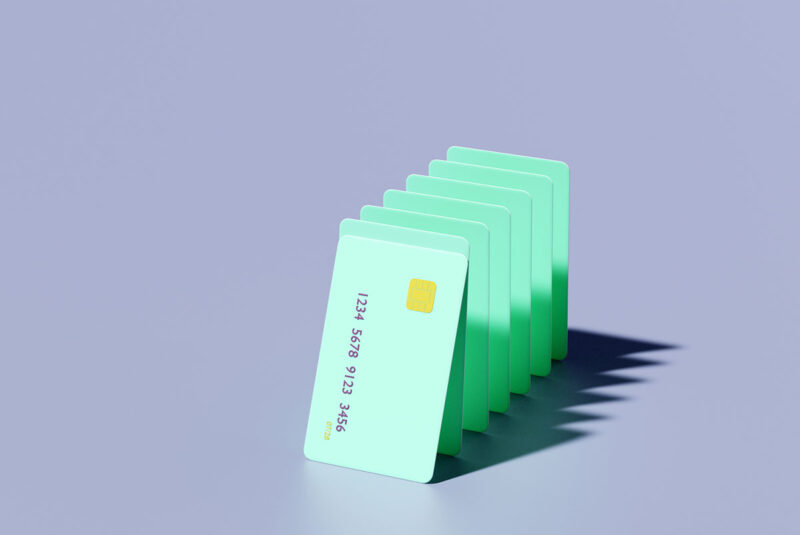Your credit scores aren’t static numbers. Like the digits on a scale, a credit score can rise or fall. In the case of a credit score, this movement is based on the information contained in one of your credit reports from Equifax, TransUnion, or Experian.
Yet unlike the numbers on your bathroom scale, when you discover that your credit scores dropped, it’s usually cause for alarm.
What Makes Your Credit Scores Go Down?
First, it’s worth pointing out that you don’t technically “lose” points from a credit score. Rather, when a new negative action on your credit report increases your level of credit risk, you earn fewer points. Either way, the result is still a lower overall credit score.
Below is a list of common actions that might net you a lower credit score.
You made a late payment
One of the fastest ways to sink your credit scores is to fall more than 30 days behind on a credit obligation. FICO bases 35% of your credit score on your payment history, so late payments can have a major impact.
Setting up automatic payments for loans and credit cards is a great way to help make sure your monthly payments stay on time. (Though you should always double check to make sure payments go through as scheduled.)
The credit utilization increased on your credit card
Credit card debt can be a major factor when calculating your credit scores. The reason for this is that credit scoring models analyze your debt-to-limit ratio, also know as credit utilization. They determine this by comparing your limits to your balances. A poor debt-to-limit ratio can negatively impact your credit score.
You should do everything you can (within reason) to pay off your balances every month. This will help you avoid paying expensive interest fees. But, if you wait all the way until the due date to make a payment, you can still risk high utilization for the next month. You can always make a payment before the statement closing date if this is a concern. This can help to ensure the major credit bureaus receive a low balance report for the upcoming month.
You applied for new credit/opened a new account
It’s true that applying for new credit has the potential to hurt your credit scores. However, the impact of hard credit inquiries is often exaggerated. The effect of an occasional credit inquiry on your credit scores is often minor (and sometimes nonexistent).
That being said, adding a new account to your credit reports might be a bit more problematic — at least in the short term. A new account can lower your average age of credit. Since 15% of your FICO Scores are based on factors related to your length of credit history, a new account has the potential to lower your credit scores.
A collection account was added to your credit report
Credit scoring models consider a collection account to be a major derogatory item on a credit report. Depending upon the rest of your report, a collection account could significantly increase your level of credit risk. If your credit scores suddenly decrease without warning, it’s wise to check if any collection accounts have been added without your knowledge.
Someone made a mistake
We’re all human. There are instances where credit scores can drop because somebody made a mistake and not because you did something wrong. For example, a lender could have mistakenly reported a late payment on your ledger, even though you have proof the payment was not late. Or, a credit bureau could have accidentally added the account of someone with a similar name to your report.
The Fair Credit Reporting Act (FCRA) gives you the right to dispute any inaccurate information that shows up on your credit reports.
Can a Credit Score Drop for No Reason?
Sometimes, it might seem like credit scores can fluctuate with no rhyme or reason. That said, there’s always an explanation, even if it isn’t immediately obvious, or easy to comprehend.
Credit scores used by lenders in the United States have to comply with a law known as the Equal Credit Opportunity Act (ECOA). Per the ECOA, credit scoring systems must be “empirically derived” plus “demonstrably and statistically sound.” That means that credit scores have to be derived scientifically. Credit bureaus cannot just adjust them on a whim.
If something causes one of your credit scores to drop, legally there has to be a reason (provided it’s a score a lender uses). Remember, lower credit is synonymous with higher risk to lenders. In their eyes, if your credit score drops, you are more likely to be 90 days or later on a credit payment within the next two years.
Below is a list of some unusual reasons your credit score might have decreased.
You’re a victim of identity theft
It’s unfortunate, but the truth is we live in a world where identity theft abounds. Millions of people fall victim to identity-impersonation crimes every year.
If someone steals your personal information and applies for fraudulent accounts in your name, credit score damage will probably be part of the aftermath. Thankfully, the FCRA is on your side again.
You can visit IdentityTheft.gov to fill out an official Identity Theft Report. From there, you can submit the report to the credit bureaus and any creditors involved in the fraud. Legally, the credit bureaus will have to block any fraudulent accounts from your credit reports within four business days.
It’s also a good idea to freeze your credit reports and perhaps place fraud alerts to boot. This may help reduce the likelihood of future fraudulent accounts being opened in your name.
An old, positive account was removed from your credit report
The FCRA requires old, negative information to be removed from your credit reports — typically after 7-10 years. However, the credit bureaus also have a policy of removing most old, positive accounts from your credit reports eventually as well.
If a positive account (one with no negative history) is closed, it will generally stay on your credit reports for 10 years. After that, the credit bureaus remove it. Unfortunately when the bureaus remove such an account, your credit scores might drop.
Your credit card issuer lowered your credit limit
In most cases, a credit card issuer has the right to decrease your credit limit as it sees fit. Just as a credit card company can give you a credit limit increase without warning, it can lower your limit as well. Unfortunately, not only can a lower credit card limit be inconvenient, it might also hurt your credit scores.
A lower credit limit can increase your credit utilization — both on an individual account and on all of your credit cards as a whole. If your credit utilization rate increases, you’ll need to pay down your credit card balances (perhaps on multiple cards) to try to undo any credit score decrease you experience.
You closed a credit card
Another way to accidentally trigger a credit utilization increase is by closing a credit card account. As mentioned, any increase in credit utilization could spell trouble for your credit scores.
It’s worth pointing out that closing a credit card won’t cause you to “lose credit” for the age of the account. That’s a myth. FICO and VantageScore both will continue to factor the closed account into your average age of account calculations.
Your Credit Is an Asset
When you visit MoneyTips, we want you to know that you can trust what’s in front of you. We are an authoritative source of accurate and relevant financial guidance. When MoneyTips content contains a link to partner or sponsor affiliated content, we’ll clearly indicate where that happens. Any opinions, analyses, reviews or recommendations expressed in our content are of the author alone, and have not been reviewed, approved or otherwise endorsed by the advertiser.
We make every effort to provide up-to-date information; however, we do not guarantee the accuracy of the information presented. Consumers should verify terms and conditions with the institution providing the products. Some articles may contain sponsored content, content about affiliated entities or content about clients in the network. While reasonable efforts are made to maintain accurate information, the information is presented without warranty.
Just like your savings and investment accounts, remember that your credit is an asset. A good credit rating can help you save money and give you the opportunity to tap into lucrative rewards. Both can have a genuine impact on your bottom line.
It’s wise to make a habit of monitoring your three credit reports and scores frequently. When you keep an eye on your credit reports, you’ll be the first to know when something goes wrong. Credit monitoring won’t prevent a problem from happening. However, it will put you in a position to react quickly when and if you need to take action.



